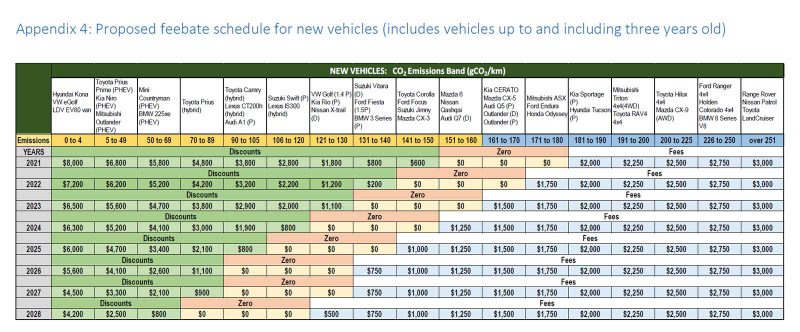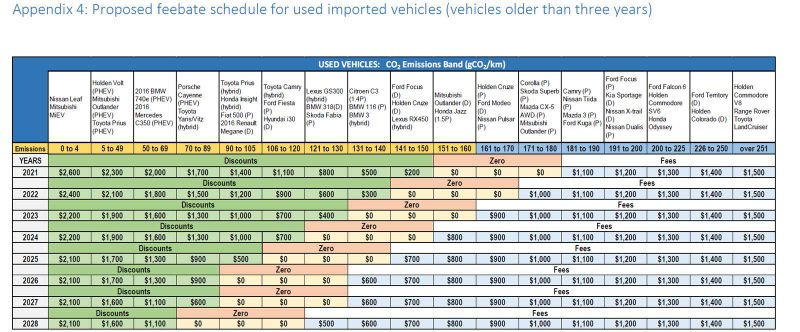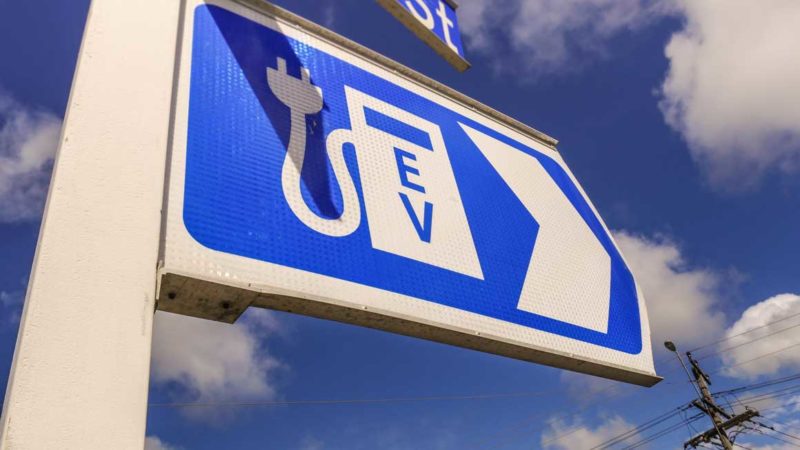In New Zealand electric cars could soon become much cheaper, with the government on Tuesday proposing two policies aimed at reducing fuel emissions and to bring electric and low emissions vehicles within the budget of more families.
Under the new “feebate” policy, known as the Clean Car Discount, New Zealanders would be able to receive a discount of up to $NZ8000 ($A7,600 at today’s rates) for new electric vehicles and $NZ2,600 ($A24,70 at today’s rates) for used import EVs.
The EV discount policy would go hand in hand with a second Clean Car Standard fuel emissions policy which aims to encourage car importers to introduce increasingly cleaner cars to the island nation.
By imposing a fee on high polluting vehicles the first time they are sold – up to $NZ3,000 ($A2,850 at today’s rates) for the highest emissions producers – the new policies seek to answer the concerns of drivers who say that the higher cost of electric vehicles makes it harder to make the switch to zero and low emissions transport.
A feebate scheme was previously recommended by the NZ Productivity Commission which stated that to pull the throttle back on New Zealand’s soaring emissions, “a rapid and comprehensive switch of the light vehicle fleet to electric vehicles (EVs) and other very low-emissions vehicles” was needed.
With nearly 15,000 electric vehicles on the road in New Zealand as of June 2019, according to the government’s Transport website, monthly EV sales are gradually on the increase – but not fast enough.
The policy, which has been under consideration for some time now, seeks to reach a proposed electric vehicle target of 100% registered vehicles by the early 2030s and a proposed emissions target of 105 grams of CO2 per kilometre by 2025.
Announcing the policy, associate transport minister Julie Anne Genter said in a statement to the New Zealand public that: “The cars, utes and vans we use every day are also the fastest growing source of harmful climate pollution and account for nearly 70 percent of our transport emissions.
“Most Kiwis want to buy a car that’s good for the environment, but tell us the upfront cost and limited choice makes it a challenge.
“This is about making cleaner cars a realistic choice for more New Zealanders – by reducing the upfront cost of electric, hybrid and fuel efficient vehicles when sold in New Zealand for the first time.”
Like Australia, New Zealand is at the behest of overseas car manufacturers, and with no fuel emissions standards has been historically a dumping ground for older, inefficient vehicles.
As stated by the government’s discussion paper:
New Zealand is one of only three developed countries that has no regulations, or meaningful incentives, to influence the fuel efficiency of light vehicles entering our country. As a result, the vehicles supplied into New Zealand are among the most fuel inefficient, and polluting, of any OECD country.
This means we end up pumping more pollution into the atmosphere and use more fuel to keep our cars moving. If our cars were as fuel efficient as the vehicles entering the European Union, we would pay on average $794 less per year at the pump.
One of those other countries is, of course, Australia. Its conservative government has canvassed a fuel efficiency policy in the past, but has baulked in the fact of a “carbon tax on wheels” campaign led by the Murdoch media.
The new rules in New Zeland means that vehicles that emit a medium amount of carbon – such as a Mitsubishi ASX or Mazda CX-5 – will receive neither a discount nor a fee, a strategy that the government says will mean there will still be choice for consumers when buying a vehicle while also working towards a cleaner national fleet.
Pure battery electric vehicles on the other hand, such as the Hyundai Kona Electric or VW e-Golf, could receive the full feebate.
This means the starting price on a Hyundai Kona Electric, for example, could come down from $NZ73,990 ($A70,326 converted) to just $NZ65,990 ($A62,722 converted).
According to RNZ, the Clean Car Discount policy could mean that hybrid versions of some vehicles could become cheaper to buy than their internal combustion engine equivalents.
“Discounts will be financed in the fairest way possibly – by putting a small fee on the highest polluting vehicles when they’re sold in New Zealand for the first time. This means people will still have choice, while contributing to the task of cleaning up the vehicles coming into New Zealand,” said Genter.
The full proposed schedules of the discounts, which would start in 2021 if approved, are as follows:


“New Zealanders have also told us they want more climate-friendly vehicles to choose from, so we’re also proposing that vehicle suppliers be required to import more fuel-efficient vehicles every year,” says Genter.
“Vehicles already registered in New Zealand would be exempt from these policies when on-sold in the second hand market – so more than 70 percent of vehicles sold each year won’t be affected by these proposals.
“These changes would prevent more than 5 million tonnes of dangerous climate pollution going into our atmosphere and would make a major contribution to meeting New Zealand’s climate targets.
“The benefits of these policies would flow on into the second hand market as more fuel efficient hybrid and electric vehicles are sold on.
“These policies are expected to save the country more than $3.4 billion in fuel and result in fuel savings of more than $6,800 over the lifetime of an average vehicle.”
The policy has been welcomed by New Zealand’s largest electricity provider Vector, which says it has been engaging with government at all levels to ensure the grid is ready for a greater transition to electric vehicles.
Vector’s chief networks officer Andre Botha said in a note by email that Vector has been trialling 50kW fast-chargers in the country’s capital, Auckland, to better understand how an influx of electric vehicles can be accommodated on the city’s grid.
“Some fast EV chargers installed in residential homes can add the equivalent of seven houses to the electricity grid, so we have known for some time that surging EV uptake will put unprecedented pressure on the country’s electricity networks – particularly if people arrive home at the end of a typical work day and start charging their cars at the same time,” says Botha.
“With half of the country’s EVs owned by Auckland residents, Vector has proactively embraced an innovative, technology-led approach to network management and planning to prepare the city for the rise of EVs, and other emerging energy system challenges.
“Our goal is to ensure the next set of policy and regulatory decisions gives us the certainty we need to continue to make smart investment decisions that benefit our customers now and in the future.”

Bridie Schmidt is associate editor for The Driven, sister site of Renew Economy. She has been writing about electric vehicles since 2018, and has a keen interest in the role that zero-emissions transport has to play in sustainability. She has participated in podcasts such as Download This Show with Marc Fennell and Shirtloads of Science with Karl Kruszelnicki and is co-organiser of the Northern Rivers Electric Vehicle Forum. Bridie also owns a Tesla Model Y and has it available for hire on evee.com.au.


